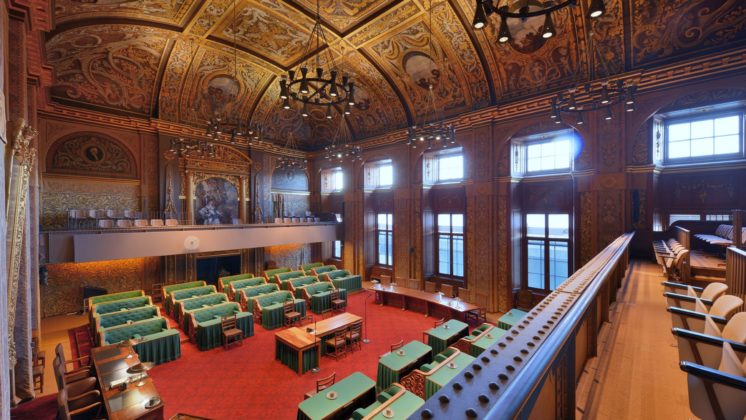1. The Corporate Governance Committee has drawn up this corporate governance code at the request of Euronext Amsterdam, the Netherlands Centre of Executive and Supervisory Directors (NCD), the Foundation for Corporate Governance Research for Pension Funds (SCGOP), the Association of Stockholders (VEB), the Association of Securities-Issuing Companies (VEUO) and the Confederation of Netherlands Industry and Employers (VNO-NCW) at the invitation of the Minister of Finance and the Minister for Economic Affairs. The code replaces the 1997 ‘Corporate Governance in the Netherlands Report; the Forty Recommendations’ of the Peters Committee. The code applies to all companies whose registered office is in the Netherlands and whose shares or depositary receipts for shares are officially listed on a government-recognised stock exchange (referred to below as ‘listed companies’). The code does not apply to investment funds that can be seen as mere financial products. An investment fund is therefore exempted in principle, unless the listed company is (also) the manager (beheerder) within the meaning of the Bill to change the Act on the Supervision of Collective Investment Schemes (Wet toezicht beleggingsinstellingen; Parliamentary Papers II 2002/03, 28 998, nos. 1-4). In this case, there is an organisation to which the principles and best practice provisions of this code are relevant.
2. In formulating the code, the Committee has based itself on the existing legislation governing the external and internal relations of listed companies, including the legislation governing the mandatory application of the two-tier board system (structuurregime), and on the case law on corporate governance.
3. The code is based on the principle accepted in the Netherlands that a company is a long-term form of collaboration between the various parties involved. The stakeholders are the groups and individuals who directly or indirectly influence (or are influenced by) the achievement of the aims of the company. In other words employees, shareholders and other providers of capital, suppliers and customers, but also government and civil society. The management board and the supervisory board have overall responsibility for weighing up the interests, generally with a view to ensuring the continuity of the enterprise. In doing so, the company endeavours to create long-term shareholder value. The management board and supervisory board should take account of the interests of the different stakeholders. The confidence of the stakeholders that their interests are represented is essential if they are to cooperate effectively within and with the company. Good entrepreneurship, including integrity and transparency of decision-making by the management board, and proper supervision thereof, including accountability for such supervision, are essential if the stakeholders are to have confidence in the management board and the supervision. These are the two pillars on which good corporate governance rests and on which this code is based.
4. The code contains the principles and concrete provisions which the persons involved in a company (including management board members and supervisory board members) and stakeholders (including institutional investors) should observe in relation to one another. The principles may be regarded as reflecting the latest general views on good corporate governance, which now enjoy wide support. The company states each year in its annual report how it has applied the principles of the code in the past financial year. The Committee does not prescribe what form the relevant chapter in the annual report should take.
5. The principles have been elaborated in the form of specific best practice provisions. These provisions create a set of standards governing the conduct of management board and supervisory board members (also in relation to the external auditor) and shareholders. They reflect the national and international 'best practices' and may be regarded as an elaboration of the general principles of good corporate governance. Listed companies may depart from the best practice provisions. Non-application is not in itself objectionable and indeed may even be justified in certain circumstances. Whether all the provisions can be applied is in fact dependent on the specific circumstances of the company and its shareholders. Not all companies are the same: they operate in different markets, the (geographic) diversification of share ownership differs, their growth perspectives are different, and so forth. In addition, the circumstances in which a company finds itself change with some regularity. Shareholders, the media and businesses that specialise in rating the corporate governance structure of listed companies should not therefore automatically treat instances of non-application as negative, but should instead carefully assess the reason for each instance of nonapplication. Both shareholders and the management and supervisory boards should be prepared to enter into a dialogue on the reasons for the non-application. It is conducive to this dialogue if shareholders make known their objections prior to the general meeting of shareholders and both the company and the shareholders are willing to engage in dialogue even outside the framework of the general meeting.
Download
Code Tabaksblat the Dutch Corporate Governance Code.pdf (171 KB)
Download








